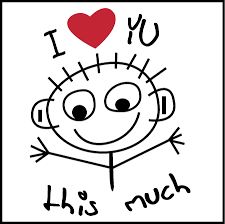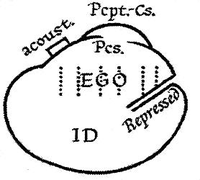ok aku tak ada mengambil ape2 gambar waktu aku pergi sana tapi
au nak kobarkan kat korang yang memamg bestgile waktu kat sana..siap naik
cameron lagi...apa yang istimewa kat cameron..
pasar malam le...hehehhe
Monday 12 December 2011
Tuesday 6 December 2011
cita -cita vs cinta?????
cinta

cinta kadangkala adalah sesuatu yang indah
tapi bila kita jatuh cinta kadang2 kita lupa pula
akan risikonya.Jadi perlukah cinta dalam
kehidupan seharian kita????
ni jawapan aku...jadi mestila perlu.
tapi cinta kita yang sebenarnya hanya perlu
kepada:
cinta sejati sebenarnya
kepada allah yang ke 2 pula cinta kepada
ibu bapa dan yang ke3 cinta pada diri sendiri..
sebab bila kita tak cintakan diri kita
mula la timbul perasaan nak bunuh diri
buat jenayah, dan macam2 lagi perkara maksiat.
tapi kita x sedar yang kita sebenarnya disayangi.
korang boleh bayangkan tak kalau allah tak
pedulikan kita???mana nak cari oksigen,lepas tu
jadi gempa bumi,tanah runtuh..
masyaallah..
aku tak nak bangkitkan isu tutup aurat ..
nanti ade lak nak perang ngan aku..
hahahha...
tapi beb ...
bila korang tutup aurat tu pun maknanya korang
 dah belajar mencintai diri korang..
dah belajar mencintai diri korang..
sebab
1. korang elakkan diri korang dibakar kat
neraka sebab korang ikhlas tutup aurat
2. korang tambahkan nilai korang berlipat
ganda untuk jadi seorang isteri yang baik dan
ibu bapa yang dihormati anak-anak.
3.perempuan dapat kurangkan risiko kena rogol..
. so kuarang la kes2 bunuh dan rogol kat malaysia ni..
(islam da bg guideline bro)

4. korang dapat elakkan malu pada kedua orang tua
korang sebab korang tutup aurat..(orang tua ni
akan nilai korang ni orang yang baik2)
5. lagi satu aku nak tambah kalau tutup aurat
korang tu ade ke laki nak pewitt/bunyi macam
tikus bekeliaran ke???tak kan..paling2 korang tunduk
malu depan dorang..so laki ni dia malu ngan pompuan
jenis tudung2 labuh nie!!!
6. so tak dela akan jadi kes buang2 bayi ni..sebab laki
nak dekat pun tak berapa nak dekat lau korang sentiasa
bawak adik dating setiap kali keluar(bawak 4-5 orang..
sok kompem tak nak keluar dah ngan korang)pastu
korang buat je benda2 yang korang rase leh test
betol ke laki tu ikhlas...
7. sejuk mata memandang kowt bila tutup aurat..
(aku pompuan pon sakit mata tengok korang yang
macam telanjang tu..ko ingat ni U.S??)
okla berbalik pada tajuk asal..cinta vs Cita-cita..
korang rasa korang dapat tak kejar ke2 2 sekali???
pada pandangan aku
jawapanya tak boleh beb!!!
so adik2 jangan terpengaruh ngan telemovie yang
menipu pemikiran kita ni
dorang cakap boleh tapi sebenar nye tak..ok aku list sket
ar kenape tak boleh...

1.gaduh
beb kalau gado otak da melayang ke mana??
last2 fail exam pastu bunuh diri..
so end up kat mane???
neraka!!!!
2.cocentration
hilangla sebab asyik terigat kat si dia 24/7 ok!!!
so bila nak study???

3.duit
melayang kowt..membazir le.
kalau korang sorang ade tak pakai duit banyak????
silap2 1 tahun da le jadi jutawan kowt....
rugi2.
4.masa
kata la tengah hangat bercinta...tiba2 dia
minta putus!!!
bercinta da bertahun bazir masa kowt..
airmata dah bole tadah 1 kolam
bole wat wuduk ke,mandi ke...
so korang pikirkanla..cinta / cita2
ini reminder tok aku gak
aku tak nak nanti orang kata aku tak sedar diri..
so pape pown kalau entry ni menyakitkan ati korang ampunkan
aku dari hujung rambut sampai hujung kaki okies..:)
cinta kadangkala adalah sesuatu yang indah
tapi bila kita jatuh cinta kadang2 kita lupa pula
akan risikonya.Jadi perlukah cinta dalam
kehidupan seharian kita????
ni jawapan aku...jadi mestila perlu.
tapi cinta kita yang sebenarnya hanya perlu
kepada:
cinta sejati sebenarnya
kepada allah yang ke 2 pula cinta kepada
ibu bapa dan yang ke3 cinta pada diri sendiri..
sebab bila kita tak cintakan diri kita
mula la timbul perasaan nak bunuh diri
buat jenayah, dan macam2 lagi perkara maksiat.
tapi kita x sedar yang kita sebenarnya disayangi.
korang boleh bayangkan tak kalau allah tak
pedulikan kita???mana nak cari oksigen,lepas tu
jadi gempa bumi,tanah runtuh..
masyaallah..
aku tak nak bangkitkan isu tutup aurat ..
nanti ade lak nak perang ngan aku..
hahahha...
tapi beb ...
bila korang tutup aurat tu pun maknanya korang
sebab
1. korang elakkan diri korang dibakar kat
neraka sebab korang ikhlas tutup aurat
2. korang tambahkan nilai korang berlipat
ganda untuk jadi seorang isteri yang baik dan
ibu bapa yang dihormati anak-anak.
3.perempuan dapat kurangkan risiko kena rogol..
. so kuarang la kes2 bunuh dan rogol kat malaysia ni..
(islam da bg guideline bro)
4. korang dapat elakkan malu pada kedua orang tua
korang sebab korang tutup aurat..(orang tua ni
akan nilai korang ni orang yang baik2)
5. lagi satu aku nak tambah kalau tutup aurat
korang tu ade ke laki nak pewitt/bunyi macam
tikus bekeliaran ke???tak kan..paling2 korang tunduk
malu depan dorang..so laki ni dia malu ngan pompuan
jenis tudung2 labuh nie!!!
6. so tak dela akan jadi kes buang2 bayi ni..sebab laki
nak dekat pun tak berapa nak dekat lau korang sentiasa
bawak adik dating setiap kali keluar(bawak 4-5 orang..
sok kompem tak nak keluar dah ngan korang)pastu
korang buat je benda2 yang korang rase leh test
betol ke laki tu ikhlas...
7. sejuk mata memandang kowt bila tutup aurat..
(aku pompuan pon sakit mata tengok korang yang
macam telanjang tu..ko ingat ni U.S??)
okla berbalik pada tajuk asal..cinta vs Cita-cita..
korang rasa korang dapat tak kejar ke2 2 sekali???
pada pandangan aku
jawapanya tak boleh beb!!!
so adik2 jangan terpengaruh ngan telemovie yang
menipu pemikiran kita ni
dorang cakap boleh tapi sebenar nye tak..ok aku list sket
ar kenape tak boleh...
1.gaduh
beb kalau gado otak da melayang ke mana??
last2 fail exam pastu bunuh diri..
so end up kat mane???
neraka!!!!
2.cocentration
hilangla sebab asyik terigat kat si dia 24/7 ok!!!
so bila nak study???
3.duit
melayang kowt..membazir le.
kalau korang sorang ade tak pakai duit banyak????
silap2 1 tahun da le jadi jutawan kowt....
rugi2.
4.masa
kata la tengah hangat bercinta...tiba2 dia
minta putus!!!
bercinta da bertahun bazir masa kowt..
airmata dah bole tadah 1 kolam
bole wat wuduk ke,mandi ke...
so korang pikirkanla..cinta / cita2
ini reminder tok aku gak
aku tak nak nanti orang kata aku tak sedar diri..
so pape pown kalau entry ni menyakitkan ati korang ampunkan
aku dari hujung rambut sampai hujung kaki okies..:)
Thursday 1 December 2011
Tuesday 29 November 2011
kenangan praktikal di johor..wth lots of love..p/s:muahx999999
this is my dearest best fren(bff)
we r crazy at danga bay..ahhaha
praktikal at HSI wth our lovely therapist...
terasa hati!!!
Ayah: Jika seseorang hina kita, dia berdosa. Jika kita terasa hati dgn penghinaan dia, kita juga berdosa. Tetapi dosa kita lebih besar dari dosa dia.
Anak: Uiikk... Tapi kenapa pulak? Kita tak buat apa-apa pun?
Anak: Uiikk... Tapi kenapa pulak? Kita tak buat apa-apa pun?
Ayah: Kerana orang yang menghina kita itu adalah peringatan daripada ALLAH.
Anak: *blur (>,<)'
Ayah: Kenapa kita dihina oleh orang tu? Kerana itu adalah ujian dari ALLAH. Kenapa ALLAH hadiahkan kita ujian itu? Kerana DIA nak mengingatkan diri kita yang dah leka dengan dunia. Bila kita berkecil hati dengan orang tersebut, bermakna kita TIDAK REDHA dengan ujian yang ALLAH turunkan. Kesimpulannya, kita bukan kecil hati dengan orang, tapi kecil hati dengan ALLAH.
Anak: Ooooooo... Ook...(n_n)'
Ayah: Lagi parah bila kita pun cerita pada kawan-kawan kita. “Dia dah banyak buat aku macam ni, macam tu…” dan sebagainya. Dan kawan-kawan kita pula akan cerita pada kawan-kawan lain. “Kesian kawan kita tu.. budak tu dah banyak sakitkan hati dia…” jadi keredhaan kita terhadap ujian ALLAH itu akan lesap.
Anak: *termakan cili . hee.
p/s: JANGAN MUDAH TERASA HATI.. KITA tidak REDHA dengan ALLAH, nanti ALLAH tak REDHA dengan kita. BAGAIMANA>? NAUZUBILLAH MIN ZALIK..
p/s:ini dialog sy petik dari blog hidup ini biarlah allah s.w.t sayang okies..
eheheheh
yela aq wse entry yg dikeutarakan oleh blog ni btol juge..
kita kena selalu muhasabah diri kita
aq pown selalu tak redha pada ujian allah..
insyaallah lepas ni aq akan usaha untuk bersabar..
n aq harus blaja mcm mana nk bersabar menghadapi ujian yg allah turunkan pada aq...
kalau bole biarlah dosa 2 kita semua gugur spt bunga yg layu kelopaknya.
sahabat
sahabat,
aku ingin kau mengerti akan perasaan ini,
kasih sayang yang aku curahkan,
marah bukan bermakna aku benci,
tapi sekadar luahan emosi dan kertelanjuran nafsu.
sahabat,
aku mahukan yang terbaik buat dirimu,
kerna aku sangat kasih padamu,
kerna aku juga tidak mahu kehilangan sahabat
semulia kamu,
sahabat,
tertulisnya nukilan ini kerna terbitnya kasih
seorang sahabat,
supaya kasih yang terjalin akan terus tersemat
dihati hingga hujung nyawa kita,
malah aku tidak mahu persahabatan kita tercalar
begitu sahaja.
sahabat,
tatkala kau menitiskan air mata kesakitan
kerna terluka hatimu,
tahukah bagaimana robeknya hatiku mengenang
kesedihanmu,
tahukah bagaimana aku menangis seperti anak kecil
yang mahukan mainanya kerana kesedihanmu.
sahabat,
walaupun puisi ini tidaklah dapat menyentuh nuranimu,
biarkan ia tersemat di ingatanmu sebagai tanda
persahabatan kita selamanya,
izinkan aku buat kali terakhirnya menyimpan memoir
kenangan kita semua bersama.
hasil nukilan:nur syahirah buat shabat2 tercinta nurjannah & batch ot klmu
aku ingin kau mengerti akan perasaan ini,
kasih sayang yang aku curahkan,
marah bukan bermakna aku benci,
tapi sekadar luahan emosi dan kertelanjuran nafsu.
sahabat,
aku mahukan yang terbaik buat dirimu,
kerna aku sangat kasih padamu,
kerna aku juga tidak mahu kehilangan sahabat
semulia kamu,
sahabat,
tertulisnya nukilan ini kerna terbitnya kasih
seorang sahabat,
supaya kasih yang terjalin akan terus tersemat
dihati hingga hujung nyawa kita,
malah aku tidak mahu persahabatan kita tercalar
begitu sahaja.
sahabat,
tatkala kau menitiskan air mata kesakitan
kerna terluka hatimu,
tahukah bagaimana robeknya hatiku mengenang
kesedihanmu,
tahukah bagaimana aku menangis seperti anak kecil
yang mahukan mainanya kerana kesedihanmu.
sahabat,
walaupun puisi ini tidaklah dapat menyentuh nuranimu,
biarkan ia tersemat di ingatanmu sebagai tanda
persahabatan kita selamanya,
izinkan aku buat kali terakhirnya menyimpan memoir
kenangan kita semua bersama.
hasil nukilan:nur syahirah buat shabat2 tercinta nurjannah & batch ot klmu
Monday 28 November 2011
maaf!!!!!1 ungkapan yang jarang di dgr...
MAAF
ok entry kali ni saya nak cerita pasal maaf..
agak-agak kenapa maaf sukar diungkap????
tapi yang selalu kita dengar
'saya sayang awak''
''saya cinta awak'''
ok ungkapan macam ni selalu dah kjta dengar..
tapi kenape perkataan maaf sukar ye..
adakah faktor usia yang menyebabkan kesukaran untuk
perkataan begini atau ego???
adakah disebabkan persekitaran???
cara didikan????
sedangkan perkataan ini adalah sangat baik untuk kita
menghapuskan dosa sesama manusia
inilah salah satu saham akhirat kita selain daripada berzikir
pada allah kita juga perlu mrnjaga hati sesama manusia..
malam pun dah makin larut so saya pun nak masuk tito
selama malam semua
p/s:assalamualaikumwarahmatullahiwabarakatu
ok entry kali ni saya nak cerita pasal maaf..
agak-agak kenapa maaf sukar diungkap????
tapi yang selalu kita dengar
'saya sayang awak''
''saya cinta awak'''
ok ungkapan macam ni selalu dah kjta dengar..
tapi kenape perkataan maaf sukar ye..
adakah faktor usia yang menyebabkan kesukaran untuk
perkataan begini atau ego???
adakah disebabkan persekitaran???
cara didikan????
sedangkan perkataan ini adalah sangat baik untuk kita
menghapuskan dosa sesama manusia
inilah salah satu saham akhirat kita selain daripada berzikir
pada allah kita juga perlu mrnjaga hati sesama manusia..
malam pun dah makin larut so saya pun nak masuk tito
selama malam semua
p/s:assalamualaikumwarahmatullahiwabarakatu
Wednesday 23 November 2011
luahan hati aq!!!!
stresssnya ya allah kau saja yang tahu hati ini
tak seronok kerja kat sini walaupun tak banyak kerja...
tapi aq tak seronok sebab aq tak ikhlas bekerja..
memang kat sini duduk je...tapi aq bekerja benda yang aq tak tahu.
huh penat bersengkang mata selama 3 tahun
akhirnya kerja bukan dalam bidang aq belaja
huh...
ya allah aq hanya mampu bersabar
aq telah usaha ,,
ya allah aq yakin akan takdir mu..
tapi yang perlu aq buat sekarang adalah usaha n tawakal..
tak seronok kerja kat sini walaupun tak banyak kerja...
tapi aq tak seronok sebab aq tak ikhlas bekerja..
memang kat sini duduk je...tapi aq bekerja benda yang aq tak tahu.
huh penat bersengkang mata selama 3 tahun
akhirnya kerja bukan dalam bidang aq belaja
huh...
ya allah aq hanya mampu bersabar
aq telah usaha ,,
ya allah aq yakin akan takdir mu..
tapi yang perlu aq buat sekarang adalah usaha n tawakal..
Tuesday 1 November 2011
lelaki ego
so arini aq nak pertikaikan persoalan
tentang lelaki ego ...jadi ape pendapat
korang tentang ni...artikel ni aq petik
dari blog2 insan laen...hahhaha
so artikel ni sebab aq bengang ngan
rakan sekerja aq..jadi aq nak utarakan
isu ni ok!!!
Kata orang, ego itu amat penting bagi lelaki. Malah, ada juga yang menganggap ia sebagai suatu aset pelengkap diri Antaran itu, tidak hairanlah kalau sebut sahaja ego, serta-merta muncullah wajah mana-mana lelaki di fikiran. Namun, bukan semua lelaki mempunyai ego yang sama. Ada antaranya yang begitu ego di tempat kerja, apatah lagi kalau dia berpangkat besar. Tetapi, apabila berada di rumah ataupun di samping keluarga, tidak pula kelihatan ketara egonya.
Menurut kaunselor berdaftar,Hushim Salleh, setiap individu memiliki egonya sendiri sama ada dia lelaki ataupun perempuan.Walau bagaimanapun, darjah keegoannya sudah tentu berbeza-beza antara satu sama lain. Kata beliau lagi, konsep ego sebenarnya melibatkan keyakinan dan jati diri seseorang. Lazimnya apabila seseorang lelaki itu mempunyai sifat tersebut, dia akan berasa dirinya melebihi orang lain. Selain itu, dia juga acap kali merasakan bahawa individu lain tidak selari dengan pendapat dan pemikirannya. Lantas situasi ini mendorongnya untuk banyak membantah dan menentang.
“Selalunya orang yang ego ini, dia mempunyai sifat agresif yang lebih tinggi daripada orang lain. Dia selalu sahaja hendak menang. Apabila dia pandang orang, selalunya dia hendak pandang dirinya lebih tinggi daripada mereka,” terang Hushim. Ego lelaki biasanya akan menjadi lebih ketara apabila dia berhadapan dengan wanita. Umumnya keegoan tersebut tercetus kerana lelaki sentiasa berfikir yang mereka lebih tinggi, hebat, berkuasa dan kuat berbanding wanita. Lantaran itu, bagi mereka, wanita mesti mendengar dan menurut kata-kata mereka.
“Lelaki biasanya mengatakan dialah pemimpin dan ketua terutamanya kepada golongan perempuan. Inilah yang membentuk ego. Memandangkan dia menganggap lelaki sebagai pemimpin dan ketua, jadi apa sahaja yang dia buat mesti lebih daripada perempuan. Pada masa inilah dia cenderung untuk menunjukkan kekuatannya,” ulas beliau. Meskipun begitu, akui beliau, kehadiran ego juga sebenarnya cukup penting dalam diri kalangan lelaki bergelar pemimpin.
Kata orang, ego itu amat penting bagi lelaki. Malah, ada juga yang menganggap ia sebagai suatu aset pelengkap diri. Antaran itu, tidak hairanlah kalau sebut sahaja ego, serta-merta muncullah wajah mana-mana lelaki di fikiran. Namun, bukan semua lelaki mempunyai ego yang sama. Ada antaranya yang begitu ego di tempat kerja, apatah lagi kalau dia berpangkat besar. Tetapi, apabila berada di rumah ataupun di samping keluarga, tidak pula kelihatan ketara egonya. Menurut kaunselor berdaftar,Hushim Salleh, setiap individu memiliki egonya sendiri sama ada dia lelaki ataupun perempuan.
Walau bagaimanapun, darjah keegoannya sudah tentu berbeza-beza antara satu sama lain. Kata beliau lagi, konsep ego sebenarnya melibatkan keyakinan dan jati diri seseorang. Lazimnya apabila seseorang lelaki itu mempunyai sifat tersebut, dia akan berasa dirinya melebihi orang lain. Selain itu, dia juga acap kali merasakan bahawa individu lain tidak selari dengan pendapat dan pemikirannya. Lantas situasi ini mendorongnya untuk banyak membantah dan menentang. “Selalunya orang yang ego ini, dia mempunyai sifat agresif yang lebih tinggi daripada orang lain.
Dia selalu sahaja hendak menang. Apabila dia pandang orang, selalunya dia hendak pandang dirinya lebih tinggi daripada mereka,” terang Hushim. Ego lelaki biasanya akan menjadi lebih ketara apabila dia berhadapan dengan wanita. Umumnya keegoan tersebut tercetus kerana lelaki sentiasa berfikir yang mereka lebih tinggi, hebat, berkuasa dan kuat berbanding wanita. Lantaran itu, bagi mereka, wanita mesti mendengar dan menurut kata-kata mereka. “Lelaki biasanya mengatakan dialah pemimpin dan ketua terutamanya kepada golongan perempuan. Inilah yang membentuk ego. Memandangkan dia menganggap lelaki sebagai pemimpin dan ketua, jadi apa sahaja yang dia buat mesti lebih daripada perempuan. Pada masa inilah dia cenderung untuk menunjukkan kekuatannya,” ulas beliau. Meskipun begitu, akui beliau, kehadiran ego juga sebenarnya cukup penting dalam diri kalangan lelaki bergelar pemimpin ok ini additional information untuk korang...
| Part of a series of articles on |
| Psychoanalysis |
|---|
 |
| Concepts[show] |
| Important figures[show] |
| Important works[show] |
| Schools of thought[show] |
| Psychology portal |
| v · d · e |
Even though the model is structural and makes reference to an apparatus, the id, ego and super-ego are functions of the mind rather than parts of the brain and do not correspond one-to-one with actual somatic structures of the kind dealt with by neuroscience.
The concepts themselves arose at a late stage in the development of Freud's thought: the "structural model" (which succeeded his "economic model" and "topographical model") was first discussed in his 1920 essay "Beyond the Pleasure Principle" and was formalised and elaborated upon three years later in his "The Ego and the Id". Freud's proposal was influenced by the ambiguity of the term "unconscious" and its many conflicting uses.
Id
The id comprises the unorganized part of the personality structure that contains the basic drives. The id acts according to the "pleasure principle", seeking to avoid pain or displeasure aroused by increases in instinctual tension.The id is unconscious by definition:
In the id,"It is the dark, inaccessible part of our personality, what little we know of it we have learned from our study of the dream-work and of the construction of neurotic symptoms, and most of that is of a negative character and can be described only as a contrast to the ego. We approach the id with analogies: we call it a chaos, a cauldron full of seething excitations... It is filled with energy reaching it from the instincts, but it has no organization, produces no collective will, but only a striving to bring about the satisfaction of the instinctual needs subject to the observance of the pleasure principle."
Developmentally, the id is anterior to the ego; i.e. the psychic apparatus begins, at birth, as an undifferentiated id, part of which then develops into a structured ego. Thus, the id:
.....
The mind of a newborn child is regarded as completely "id-ridden", in the sense that it is a mass of instinctive drives and impulses, and needs immediate satisfaction, a view which equates a newborn child with an id-ridden individual—often humorously—with this analogy: an alimentary tract with no sense of responsibility at either end, paraphrasing a quip made by former U.S. President Ronald Reagan during his 1965 campaign for Governor of California in which he compared government to a baby
The id is responsible for our basic drives, "knows no judgements of value: no good and evil, no morality...Instinctual cathexes seeking discharge — that, in our view, is all there is in the id." It is regarded as "the great reservoir of libido", the instinctive drive to create — the life instincts that are crucial to pleasurable survival. Alongside the life instincts came the death instincts — the death drive which Freud articulated relatively late in his career in "the hypothesis of a death instinct, the task of which is to lead organic life back into the inanimate state." For Freud, "the death instinct would thus seem to express itself — though probably only in part — as an instinct of destruction directed against the external world and other organisms.": through aggression. Freud considered that "the id, the whole person...originally includes all the instinctual impulses...the destructive instinct as well." as Eros or the life instincts.
Ego
The ego acts according to the reality principle; i.e. it seeks to please the id’s drive in realistic ways that will benefit in the long term rather than bringing grief. At the same time, Freud concedes that as the ego "attempts to mediate between id and reality, it is often obliged to cloak the Ucs. [Unconscious] commands of the id with its own Pcs. [Preconscious] rationalizations, to conceal the id's conflicts with reality, to profess...to be taking notice of reality even when the id has remained rigid and unyielding.The ego comprises that organised part of the personality structure that includes defensive, perceptual, intellectual-cognitive, and executive functions. Conscious awareness resides in the ego, although not all of the operations of the ego are conscious. Originally, Freud used the word ego to mean a sense of self, but later revised it to mean a set of psychic functions such as judgment, tolerance, reality testing, control, planning, defence, synthesis of information, intellectual functioning, and memory. The ego separates out what is real. It helps us to organise our thoughts and make sense of them and the world around us.The ego is that part of the id which has been modified by the direct influence of the external world ... The ego represents what may be called reason and common sense, in contrast to the id, which contains the passions ... in its relation to the id it is like a man on horseback, who has to hold in check the superior strength of the horse; with this difference, that the rider tries to do so with his own strength, while the ego uses borrowed forces. Still worse, "it serves three severe masters...the external world, the super-ego and the id. Its task is to find a balance between primitive drives and reality while satisfying the id and super-ego. Its main concern is with the individual's safety and allows some of the id's desires to be expressed, but only when consequences of these actions are marginal. "Thus the ego, driven by the id, confined by the super-ego, repulsed by reality, struggles...[in] bringing about harmony among the forces and influences working in and upon it," and readily "breaks out in anxiety — realistic anxiety regarding the external world, moral anxiety regarding the super-ego, and neurotic anxiety regarding the strength of the passions in the id. It has to do its best to suit all three, thus is constantly feeling hemmed by the danger of causing discontent on two other sides. It is said, however, that the ego seems to be more loyal to the id, preferring to gloss over the finer details of reality to minimize conflicts while pretending to have a regard for reality. But the super-ego is constantly watching every one of the ego's moves and punishes it with feelings of guilt, anxiety, and inferiority.
To overcome this the ego employs defense mechanisms. The defense mechanisms are not done so directly or consciously. They lessen the tension by covering up our impulses that are threatening. Ego defense mechanisms are often used by the ego when id behavior conflicts with reality and either society's morals, norms, and taboos or the individual's expectations as a result of the internalisation of these morals, norms, and their taboos.
Denial, displacement, intellectualisation, fantasy, compensation, projection, rationalisation, reaction formation, regression, repression, and sublimation were the defense mechanisms Freud identified. However, his daughter Anna Freud clarified and identified the concepts of undoing, suppression, dissociation, idealisation, identification, introjection, inversion, somatisation, splitting, and substitution.

"The ego is not sharply separated from the id; its lower portion merges into it... But the repressed merges into the id as well, and is merely a part of it. The repressed is only cut off sharply from the ego by the resistances of repression; it can communicate with the ego through the id." (Sigmund Freud, 1923)
In modern English, ego has many meanings. It could mean one’s self-esteem, an inflated sense of self-worth, or in philosophical terms, one’s self. Ego development is known as the development of multiple processes, cognitive function, defenses, and interpersonal skills or to early adolescence when ego processes are emerged.
Super-ego
Freud developed his concept of the super-ego from an earlier combination of the ego ideal and the "special psychical agency which performs the task of seeing that narcissistic satisfaction from the ego ideal is ensured...what we call our 'conscience'. For him "the installation of the super-ego can be described as a successful instance of identification with the parental agency," while as development proceeds "the super-ego also takes on the influence of those who have stepped into the place of parents — educators, teachers, people chosen as ideal models.The super-ego aims for perfection. It comprises that organised part of the personality structure, mainly but not entirely unconscious, that includes the individual's ego ideals, spiritual goals, and the psychic agency (commonly called "conscience") that criticises and prohibits his or her drives, fantasies, feelings, and actions. "The Super-ego can be thought of as a type of conscience that punishes misbehavior with feelings of guilt. For example, for having extra-marital affairs.
The super-ego works in contradiction to the id. The super-ego strives to act in a socially appropriate manner, whereas the id just wants instant self-gratification. The super-ego controls our sense of right and wrong and guilt. It helps us fit into society by getting us to act in socially acceptable ways.
The super-ego's demands often oppose the id’s, so the ego sometimes has a hard time in reconciling the two.
Freud's theory implies that the super-ego is a symbolic internalisation of the father figure and cultural regulations. The super-ego tends to stand in opposition to the desires of the id because of their conflicting objectives, and its aggressiveness towards the ego. The super-ego acts as the conscience, maintaining our sense of morality and proscription from taboos. The super-ego and the ego are the product of two key factors: the state of helplessness of the child and the Oedipus complex.]Its formation takes place during the dissolution of the Oedipus complex and is formed by an identification with and internalisation of the father figure after the little boy cannot successfully hold the mother as a love-object out of fear of castration.
The concept of super-ego and the Oedipus complex is subject to criticism for its perceived sexism. Women, who are considered to be already castrated, do not identify with the father, and therefore, for Freud, "their super-ego is never so inexorable, so impersonal, so independent of its emotional origins as we require it to be in men...they are often more influenced in their judgements by feelings of affection or hostility." He went on however to modify his position to the effect "that the majority of men are also far behind the masculine ideal and that all human individuals, as a result of their bisexual disposition and of cross-inheritance, combine in themselves both masculine and feminine characteristics.""The super-ego retains the character of the father, while the more powerful the Oedipus complex was and the more rapidly it succumbed to repression (under the influence of authority, religious teaching, schooling and reading), the stricter will be the domination of the super-ego over the ego later on—in the form of conscience or perhaps of an unconscious sense of guilt."—Freud, The Ego and the Id (1923)
In Sigmund Freud's work Civilization and Its Discontents (1930) he also discusses the concept of a "cultural super-ego". Freud suggested that the demands of the super-ego "coincide with the precepts of the prevailing cultural super-ego. At this point the two processes, that of the cultural development of the group and that of the cultural development of the individual, are, as it were, always interlocked." Ethics are a central element in the demands of the cultural super-ego, but Freud (as analytic moralist) protested against what he called "the unpsychological proceedings of the cultural super-ego...the ethical demands of the cultural super-ego. It does not trouble itself enough about the facts of the mental constitution of human beings.
Advantages of the structural model
Freud's earlier, topographical model of the mind had divided the mind into the three elements of conscious, preconscious, and unconscious. At its heart was "the dialectic of unconscious traumatic memory versus consciousness...which soon became a conflict between System Ucs versus System Cs."[25] With what Freud called the "disagreeable discovery that on the one hand (super-)ego and conscious and on the other hand repressed and unconscious are far from coinciding,"[26] Freud took the step in the structural model to "no longer use the term 'unconscious' in the systematic sense," and to rename "the mental region that is foreign to the ego...[and] in future call it the 'id'."[27] The partition of the psyche defined in the structural model is thus one that cuts across the topographical model's partition of "conscious vs. unconscious"."The new terminology which he introduced has a highly clarifying effect and so made further clinical advances possible."[28] Its value lies in the increased degree of precision and diversification made possible: Although the id is unconscious by definition, the ego and the super-ego are both partly conscious and partly unconscious. What is more, with this new model Freud achieved a more systematic classification of mental disorder than had been available previously:
It is important to realise however "the three newly presented entities, the id, the ego and the superego, all had lengthy past histories (two of them under other names)" — the id as the systematic unconscious, the super-ego as conscience/ego ideal. Equally, Freud never abandoned the topographical division of conscious, preconscious, and unconscious, though as he noted ruefully "the three qualities of consciousness and the three provinces of the mental apparatus do not fall together into three peaceful couples...we had no right to expect any such smooth arrangement."Transference neuroses correspond to a conflict between the ego and the id; narcissistic neuroses, to a conflict between the ego and the superego; and psychoses, to one between the ego and the external world."—Freud, Neurosis and Psychosis (1923)
Subscribe to:
Posts (Atom)








